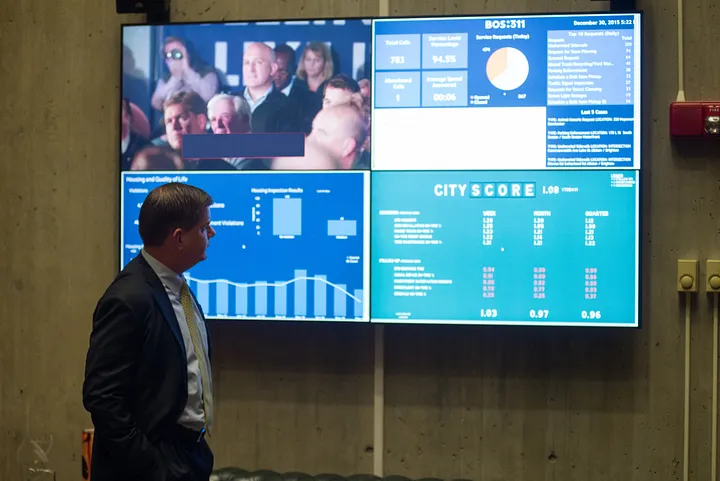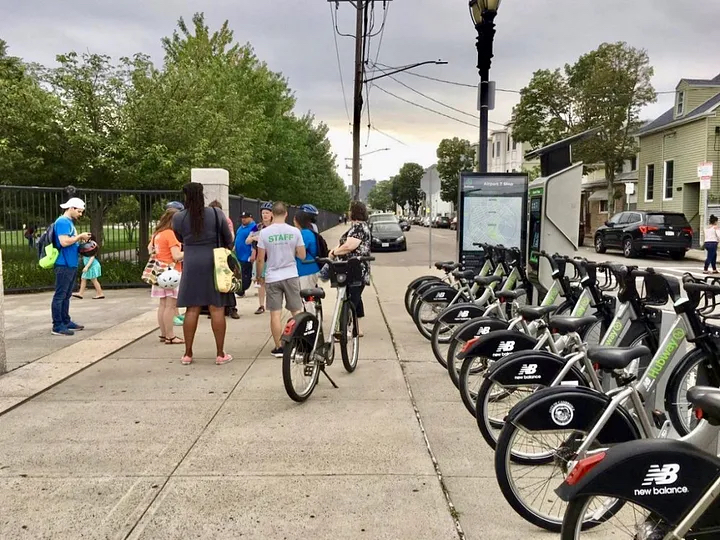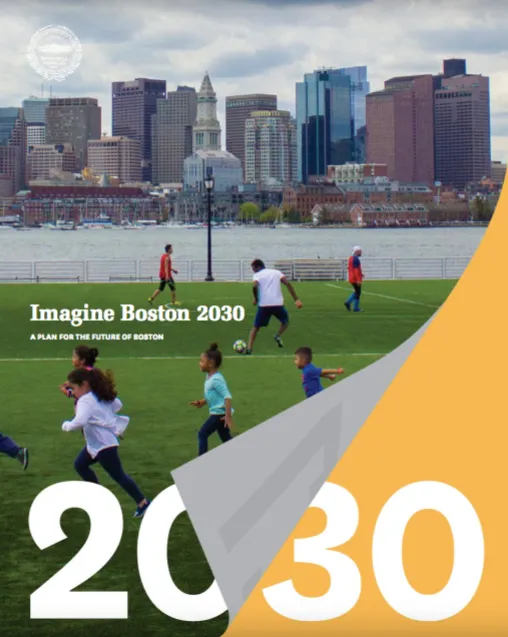Boston, Massachusetts, USA
Project Type:
Community Engagement, Equity, Finance, High-Performing Government, Homelessness, Housing, Infrastructure, Public Safety, Transportation
2023 Gold Certification
Boston, MA is building a more inclusive city by improving how it asks for gender-identity data. City officials in Boston recognized that gender and sexuality help shape an individual’s identity. In 2023, the Equity and Inclusion Cabinet investigated how and when the City should be asking about gender identity through a series of data-driven projects including an in-depth literature review, soliciting resident feedback through focus groups, and a process mapping of the Boston Marriage License experience. Based on the City’s findings, the City has taken steps to support individuals whose gender and sexual identities have historically not been recognized by no longer requiring sex or gender identification on marriage licenses. In addition, the Cabinet developed a citywide Gender Aware Guidelines and Standards for the collection of gender-identity data.
2020 Silver Certification
Data-based dashboards offer transparency around City programs and demonstrate progress on goals like improving EMS response times and reducing double-parking.
Revising performance metrics and contracts with outside vendors to focus on outcomes incentivizes city agencies to produce tangible results. For example, this drove the Hubway Bike Share system’s improved user experience by increasing access to the bike share system for low-income and minority communities through data analytics.
Community engagement increased significantly as a result of Boston’s user-friendly data-driven investments that include testing different communication methods such as targeted emails and social media posts.
Driving Boston’s Progress and Performance
Achieving What Works Cities Certification builds on Imagine Boston 2030, Boston’s first citywide plan in 50 years. Imagine Boston 2030 will guide growth to support the city’s dynamic economy and expand opportunity for all residents. The plan prioritizes inclusionary growth and puts forth a comprehensive vision to boost quality of life, equity, and resilience in every neighborhood across the city. Shaped by the input of 15,000 residents who contributed their thoughts to the plan, Imagine Boston 2030 identifies five action areas to guide Boston’s growth, enhancement, and preservation, and is measured against metrics to evaluate progress and successes.

In addition to Imagine Boston, Mayor Marty Walsh’s Administration also launched CityScore in 2016, a metrics-driven program and first-of-its kind tool created by the City of Boston to provide Mayor Walsh, city staff, and residents a way to understand the overall health of the City by scoring the City’s performance on individual metrics and delivering a single, indicative number to see how operations are going on a day-to-day basis. (Any score over 1.25 is considered perfect.) CityScore continues to provide real-time data on how city services are operating, and has led to increased investments and improved services, including in EMS response times.
Boston applies its analytical expertise to many challenges, including:
- Ending veteran and chronic homelessness by 2018 with innovative new software for Boston’s Way Home;
- Working to create 53,000 new units of housing at a variety of income levels, to ensure growth and prosperity in every corner of Boston;
- Launching Analyze Boston to create more transparency around city data;
- Using data for everything from improving EMS response times to tackling double-parking;
- Making data-driven investments through the Fiscal Year 2018 budget.

Ensuring Strong Outcomes
The city has also worked with What Works Cities (WWC) partner the Government Performance Lab at the Harvard Kennedy School to redesign contracts with outside vendors to ensure better results, including for its bike share program — with a focus on making bikes available throughout the city, and not just in more affluent areas — and new city roadway and building projects.
Boston also revised its performance metrics for city departments to ensure stronger outcomes. In Public Works, for example, instead of keeping track of potholes filled, the department has focused on creating an average pavement index for the city, seeking to assess what percentage of roads are in good repair. The City also developed milestones to hold itself accountable for making progress each year.
Engaging Communities to Reimagine the Future
The city has also worked with What Works Cities (WWC) partner the Government Performance Lab at the Harvard Kennedy School to redesign contracts with outside vendors to ensure better results, including for its bike share program — with a focus on making bikes available throughout the city, and not just in more affluent areas — and new city roadway and building projects.
Boston also revised its performance metrics for city departments to ensure stronger outcomes. In Public Works, for example, instead of keeping track of potholes filled, the department has focused on creating an average pavement index for the city, seeking to assess what percentage of roads are in good repair. The City also developed milestones to hold itself accountable for making progress each year.

For Imagine Boston 2030, the City ensured — through innovative mapping tools, texting, and multiple digital formats, including old-fashioned street canvassing — that thousands of residents would have the opportunity to give their opinions on everything from transportation to open space. Indeed, the plan has 14 metrics tracking, among other issues, housing, premature mortality, walkability, safety, childhood poverty, education, and job creation.
“It was imperative to bring data and innovation to planning what Boston could look like in 2030.”
“It’s the first time we’ve done a plan like this in 50 years, and we were very ambitious about what we wanted it to contain. Our vision was that individuals could engage with the data in an easy-to-use way; we wanted to send a clear message of how the City is working collaboratively toward its goals, making sure Boston is a better place for everyone who lives here.”